Kate Bowler: Hi there. This is Everything Happens and I’m Kate Bowler. When I was first diagnosed, I was in the middle of a massive research project that would get me tenure, and I remember staring at the computer thinking, if I keep working on this, will I ever see it published? What’s the point? How should I spend my time? And then somewhere in the mix of all the drugs and the naps and the long talks with my family, I realized that I wanted to stay myself. A nerdy historian. Even if it never amounted to anything.
K.B.: Well, that day I never thought I would see is here. The book is called The Preacher’s Wife: The Precarious Power of Evangelical Women Celebrities. You’ve seen these leading ladies on television a hundred times. Her hair is big, her smile is bigger. She’s standing by her man and if he’s preaching, she’s right there with a confirming nod and an understanding tear. She seems to be evangelical arm candy. A step away from a scene in The Handmaid’s Tale or so I thought.
K.B.: But when my studies took me behind the scenes, I discovered something very surprising: that the women of megaministry are not nearly as submissive as their theology. The very churches which so adamantly oppose women in ordained leadership are those parts where women have built astonishing power, celebrity and influence.
K.B.: They top the New York Times best sellers. They sell out stadiums. They have regular appearances on The Today Show, but they are denied the most important symbol of spiritual power, the pulpit. This is the story of the women who started off as somebody’s wife and ended up as everyone’s almost pastor. And what better way to celebrate the launch of this massive project, no, seriously, it is a shockingly heavy book. Than speaking with someone who understands the penalties and privileges of the spiritual marketplace better than anyone, Jen Hatmaker.
K.B.: Jen is one of the most popular Christian voices today. Millions have flocked to her through her best selling books, including For the Love and Of Mess and Moxie. Her podcast or when her family starred in an HGTV show based on renovating their home. Jen and her husband Brandon pastor a church in Austin, Texas. Where they live with their five kids. Plus she is a force for grace and humor and justice in the world. Jen, hello! I’m so happy to be speaking with you today.
Jen Hatmaker: Same. Same! Thank you for having me on. I just feel like our Venn diagram has such incredible crossover.
K.B.: (laughing) Yes.
J.H.: It’s just about time.
K.B.: It does!
J.H.: It’s about time we did this.
K.B.: That’s right. I’d love to start out by hearing a bit about your spiritual background. ‘Cause you were a pastor’s kid and I think you went to a Christian college…
J.H.: Oh man.
K.B.: And it sounds like you were also a child bride like me.
J.H.: Oh my gosh. I detect no lie in anything that you just said. Yeah. I came straight up through the gullet of Southern Baptist world. My, my dad was a pastor but not in a traditional way. He was pretty rogue. So I was raised very traditional of course, very conservative, exactly what you think. All the sort of tropes on…
K.B.: Yeah.
J.H.: Conservative 80s evangelical kid. I was like the head cheerleader. I really was. I was the lead, um, role. I was the poster child. It worked for me because I have… If you can imagine, it’s strange now to have sort of diverted, but I was always a real big rule follower.
K.B.: Yeah.
J.H.: And, and achiever, so that has stayed. But I’m achiever and love- I’ve always loved approval from authority.
K.B.: Yeah, me too.
J.H.: And so that system really worked for me. I excelled in it because of the way I was wired.
K.B.: Yeah.
J.H.: I mean, I was very prepared to follow all those rules like a champion.
K.B.: Yeah.
J.H.: And then I went on to Oklahoma Baptist University, which is kind of like going to Baptist summer camp for four years. And that’s where I met Brandon my husband. And you were very correct. We got married. It seems ridiculous to say this, but we got married when I was 19 and he was 21.
K.B.: Oh my gosh, that’s awesome.
J.H.: I don’t know what to say, I was… I was like, halfway through my sophomore year.
K.B.: Yeah.
J.H.: What’s so funny is my second kid right now is 19.
K.B.: Yeah.
J.H.: She’s coming up on being halfway through her sophomore year. And I look at her and I’m like, you are a baby. You are a born baby.
K.B.: I will not sign that waiver to have you get married.
J.H.: I mean, I just have no idea what possessed us. How dare we. Um, and yet here we are, we’ve been married 25 years. Um… so I guess it stuck. Uh, so anyway, yeah, that was my… That was my history. That was my framework. I had literally no other point of reference. My worldview was 100% homogenous.
K.B.: Yeah.
J.H.: I had never been challenged by a different perspective or experience or demographic or tradition ever. Um… and so I really did think that was the center of the universe. I felt like here we are right here in the belly of the beast and this has got to be the way everybody thinks and behaves. And this is what faithfulness looks like. And it was unchallenged until I was an adult.
K.B.: For people who might not know, um, you’ve been on something of a roller coaster-
J.H.: That is fair.
K.B.: …with evangelicalism.
J.H.: Yep.
K.B.: And I’m wondering if you could just narrate what happened?
J.H.: Sure. Um, as with anything, there’s a lot of levels to it, a lot of layers. It’s not just one thing.
K.B.: Yeah.
J.H.: Um, for me, I would say a handful of years ago, I think a combination of things. I got older, so there’s just a maturity. You grow up. Um, so, I was maturing. I was completely exposed to new people and new ideas and…
K.B.: Yeah.
J.H.: Other traditions and other cultures and other interpretations. Which as I mentioned earlier, I had zero exposure to growing up and I really do mean zero. Um, and so as I started learning from different kinds of thinkers and paying attention to the questions they were asking, I started for the first time deeply listening to leaders and thinkers and people on the margins, which I’d just never done because I didn’t have to. And so as I started hearing an experience that was so wildly different from the one I grew up in.
K.B.: Yeah.
J.H.: From the faith that I was handed and I started to see some holes in the story. And, um, oh my gosh, what a terrible time. I mean, I just… I have never been so disoriented in my faith and asking questions I’ve never asked before. And it was… It was painful and it was terrifying, you know, because look I told you, I love rules.
K.B.: Yeah.
J.H.: And so certainty has always been a bedfellow that I loved. It was my favorite companion.
K.B.: Yeah.
J.H.: To just at least feel sure and right and correct. That’s always mattered to me. And so just to have that set off-kilter was a really strange time. And so most of that for me, most of that tension started privately and then started coming out publicly. This was just right at the rise of social media, just real early on still. It wasn’t even then what it is now. And of course that just started leaking out. My leadership started leaking out in my writing, in the things that I wanted to talk about and say. And so I went through, I’m going to say four years. I just felt like I was constantly in conflict with my online community. I mean, just constantly.
K.B.: Yeah.
J.H.: Policed every single day for these questions that I was bringing up. And-
K.B.: Was there a theological fall line that you found yourself on the other side of?
J.H.: Like, specifically?
K.B.: Yeah.
J.H.: Well, ultimately I think the straw that broke the camel’s back obviously, was mine and my husband’s, and kind of our community too – that was not done in a vacuum, that was done very much in real life on the ground over a definitely a kind of long period of time. But was our reversal on our personal interpretation of what does the Bible and what does God hold for the LGBTQ community.
J.H.: And so for us, you know, that was a pretty big pivot to say we believe there is holy space for this community and…
K.B.: Yeah.
J.H.: That they are capable of just as much righteousness and faithfulness and obedience and that they should be welcomed without equivocation, obviously. I mean, we’re smart girls. I knew of course that was going to be, that’d be the beginning of the end and it was. But it was still intentional, it was still purposeful.
J.H.: Uh, I was at a point where I realized I could either keep my career intact, which by the way was thriving.
K.B.: Yeah.
J.H.: Thriving. I was a darling of evangelical subculture for women. I was groomed to succeed there. I was good at it. That’s my native tongue.
K.B.: Yeah.
J.H.: You know, I know literally exactly how to thread that needle. And so I could either keep that career intact or I could keep my soul intact and I picked that.
J.H.: So, I was pretty sure there for a minute that it was all gone. That I’d, you know…
K.B.: Yeah.
J.H.: I’d made my bed and now I was going to lie in it and I was gonna have to pick a different path. And to some degree, a great deal of that was true. There was much loss spilled into that season, both emotionally and spiritually. Also financially…
K.B.: Yeah.
J.H.: Um, professionally…
K.B.: Yeah.
J.H.: It was just loss compounded. Um…
K.B.: Yeah, I mean, the Christian machine can be incredibly punitive.
J.H.: I couldn’t believe it.
K.B.: And there are penalties for stepping out of bounds.
J.H.: Yeah, big. And, you know, I… Again, this probably goes back to my glass half full take on life but I believed because that decision was made out of such sincerity and such good faith.
K.B.: Yeah.
J.H.: And after a season of so much searching and inquiry in prayer and study and it was such a thoughtful spot. And I had served my community with all my might for so long. I thought maybe going in…
K.B.: Yeah.
J.H.: Maybe this is something that we are now able to hold intention or to open up dialogue around in community and it was not. So, I was wrong on that. And so then of course-
K.B.: Oh Jen.
J.H.: …I was real wrong about that.
K.B.: So I have this theory, um… So I, you know, I studied the televangelism scandals forever and then with this book I was… I was like, always testing the question, like, what gets someone kicked out?
J.H.: Yeah.
K.B.: And when you look at men in the, you know, megachurch, leaders, et cetera, et cetera. Like, what is it going to take to kick someone out of bounds?
J.H.: Right.
K.B.: And the answer for, like, a televangelist is a sexual scandal. You’ve got maybe like six months before you are, you know, gloriously rehabilitated.
J.H.: Mm… Yes.
K.B.: And then if you have a financial scandal and it’s real bad, then like maybe a year and then some coaching and then a newborn, you’re fine.
J.H.: Yes.
K.B.: If you have sex and money and it’s at the same time, plus the press… Fine, you’re out. You’re out for at least a bit.
J.H.: That’s it.
K.B.: You’re done, uh, for a while. I can name exceptions. I can name so many exceptions.
J.H.: Yes, same, yeah.
K.B.: Um, but if you’re a woman, it doesn’t take a sex scandal or a financial scandal, it takes the appearance of impropriety or false belief or controversy…
J.H.: Yeah.
K.B.: And you’re out.
J.H.: That’s it.
K.B.: Like, that little perch is so narrow. Did you find the reaction to you felt particularly gendered?
J.H.: That is just such interesting observations and 100% yes. It was incredibly gendered and… And the way that people would write it, I mean, not just men…
K.B.: Yeah.
J.H.: But women inside still embedded in that particular stream. It did not treat me at all with the gravitas that they might’ve treated a man.
K.B.: Oh, I bet you only had feelings but not…
J.H.: I had feelings…
K.B.: You had so many feelings.
J.H.: I was a lady blogger. Um… I… I was an HGTV lady.
K.B.: Sure, sure, sure.
J.H.: I just had a big heart. My big heart just won out.
K.B.: You just kept emoting, man.
J.H.: I just emoted and I just, my poor little old brain just didn’t get a say. And so my heart just won the day and that’s literally how I was spoken of. And then of course this, I don’t know how else to say it. I hope I’m not exaggerating but just hysteria around it.
K.B.: Yeah, yeah.
J.H.: I mean, as if-
K.B.: I remember that.
J.H.: …it is the end of the world. We are all going to hell.
K.B.: Yes.
J.H.: All the women who have ever listened to a word I’ve said, they’re like poor little dumb, dumb sheep. Well, God help ’em. You know, God help ’em. ‘Cause now what’s gonna become of their faith…
K.B.: Yeah, yeah.
J.H.: And, I mean it was just hysterical and it was a feeding frenzy too. And that’s not just me, that’s just how this culture works. That enormous cancel culture. But I just find it…
K.B.: Yeah.
J.H.: Like with glee when it is around a woman like me.
K.B.: Yeah.
J.H.: Just gleeful. Um…
K.B.: And I think too, like it’s a fear. It’s like this fear they have of cheap paperbacks. So I’m, like I’m in an institution.
J.H.: Yep.
K.B.: And I notice that when people narrate institutional authority, or like, how dare you have this platform? What they’re… They’re like look, I’m telling you this stuff from the pulpit or from an official institution. But what I can’t control is the fact that on everyone’s bedside table is a cheap paperback they got at Walmart or Target.
J.H.: Yeah.
K.B.: And that’s invariably written by a woman that they didn’t pick. And I don’t mean to be trite about it, but I do find like, there’s all kinds of spiritual influence that sustains people.
J.H.: Yeah.
K.B.: And the people who’ve triumphed in the marketplace, like you, have found a way to nourish people without authorization. And the authorization thing always comes up if you just like, sidestep the, you know, the rules a little bit.
J.H.: It’s true.
K.B.: And having watched you for the last couple years, I’ll say like it really impresses me that you’ve been so open to, you know, we’re both Methodists.
J.H.: Right.
K.B.: We believe in the power of sanctification.
J.H.: Yes.
K.B.: Just the hope that we are somehow changed over the course of our lives. But brands aren’t supposed to change. You know, you’re supposed to-
J.H.: That’s right.
K.B.: Just like have a thing and then do the thing forever-
J.H.: You said it.
K.B.: ‘Cause that’s why people, you know, go to find you on blank. And I think it takes a lot of courage to evolve ’cause we’re not always who we used to be.
J.H.: You’re absolutely right. I think we can manage a lot of grace for people who think differently than we do or have a different tradition-
K.B.: Yeah.
J.H.: Or they’ve come up through a completely different space than we have. But when we watch somebody in front of our faces make a shift or evolve or say, “I think I was wrong about that.” It’s too disorienting. And I think our fear of change and then I really believe that by and large, most people in the evangelical community, they just – It’s that they don’t wanna be wrong. I think they wanna be right.
K.B.: Yeah.
J.H.: I think there’s a deep concern about being faithful, about being obedient, about holding tightly to scripture. And so in the most generous of ways, I believe that people are just like…
K.B.: Yeah.
J.H.: This scares me because maybe it’s not right.
K.B.: Yeah.
J.H.: Um, and then what?
J.H.: Yeah, yeah.
J.H.: Um, and yet every generation before us has evolved in faith. This is just our turn. It’s our turn to press on those old forms.
K.B.: Yeah.
J.H.: But I think it may be this hard for every generation who does so.
K.B.: Yeah, yeah. ‘Cause we just inherit different stories.
J.H.: Sure.
K.B.: Like right now, like the one that breaks my heart is that there are winners and losers and that if you are struggling you are failing.
J.H.: Yes.
K.B.: And uh, and I didn’t know it until I felt it and then I felt it everywhere and-
J.H.: Oh that theology, which is, it’s very easily to, kind of wrap some scripture around that to shore it up…
K.B.: Yeah.
J.H.: But man, does it ever just break hearts.
K.B.: Yeah.
J.H.: Just breaks hearts wide open.
K.B.: Yeah.
J.H.: I see that as one advantage to building a ministry over in the marketplace that is sort of one of its through lines, which is permission to be sad and to fail. And to get things wrong and not declare the whole experiment ruined.
K.B.: Yeah.
J.H.: That to me is at least one advantage I see in my world unshackling some of those chains.
K.B.: Yeah, yeah, I think you’re right. I think it’s given people permission to be broken in ways they didn’t feel in their churches.
J.H.: It is a relief for a lot of people to maybe discover for the first time in their faith journey that, um, pain does not equal failure.
K.B.: Yeah. What do you say to people who are ready to walk away from the church altogether, after having a rough experience or just not being sure who to trust?
J.H.: I understand.
K.B.: Yeah.
J.H.: I really do. I understand and I am not presumptuous enough to tell them what they should or shouldn’t think. Um, I lost… My books came off shelves and went out of print and I lost… Okay, great. The internet was mean to me. Okay. I still had everything that mattered to me. Right? My life was kept intact. So many people on their end of church abuse, of spiritual abuse, is so traumatizing, um, to their personhood…
K.B.: Yeah.
J.H.: To their families, to their very soul, that I would never presume to tell somebody that they just need to keep looking and try harder. I believe that there is value for some people in a season to just step away.
K.B.: Yeah.
J.H.: God is not contained in a church, I know that’s a trope, but He’s just not. And there is so much spiritual movement outside of religious institutions, inside as well. This is not a dichotomy. This is not binary.
K.B.: Yeah.
J.H.: But also outside. And I’ve experienced that and so I have so much tenderness for people who cannot yet be in a church because the trauma’s too real.
K.B.: Yeah.
J.H.: Um, the triggers are too acute. If you’re sitting in church and you cannot even hear God through your adrenaline and your fear…
K.B.: Yeah.
J.H.: And your memories, then it’s just time to have a break.
K.B.: One of the reasons I really like you is you’re so relatable and not in an annoying way. I think you’re very easy to know, which I just, uh, love as a quality. And I think one of the reasons you’ve been so successful is you really, really want to know your readers. You really like responding to the needs, the felt needs of your audience. And so I’m wondering with all your time out there, what have you learned about what people are hungry for?
J.H.: First of all, thank you. That was a really kind thing to say. And that means a lot to me. And so I appreciate that really generous compliment. Um, I do sincerely love my community.
K.B.: Yeah.
J.H.: I really do. That is not fake. I love my readers and I love this weird space where we have gathered now in this year of our Lord. Um, you know, who would’ve known, how could we have known this 15 years ago that this would be our way. Um…
K.B.: Yeah. 140 characters or less, that we would be there in that way.
J.H.: I mean, what? Who could know? What are we doing? Um, but I do, do, I love this community and I… So I do. I listen a lot and I’m paying attention. Where’s the wind at our backs together collectively?
K.B.: Yeah.
J.H.: What troubles us collectively? What are we paying attention to? What are we worried about? What are we hoping for? And I see so much energy in similar directions. And so, I think what gets me the most excited is this real craving for justice in the world. And I’m thrilled to see it and I think it’s important. And when these are the conversations that I drop in front of us and we gather around, there is such energy and such momentum, so many good questions. So much good thought.
J.H.: You know, my community is largely white women. I am my own demographic essentially. Um, and so we have so much to learn, you know we… In many ways, except for the female part, you know, we kind of sit at the seat of privilege. And so getting to talk about our own privilege and learning from our brothers and sisters who are speaking into that experience from a different space has been so meaningful. And that is where I see the most change and momentum in what I do.
J.H.: But that’s what I’m excited about right now. I am excited about finding truth and justice and equality in our time as best we can.
K.B.: Yeah.
J.H.: I want… I want the history books to look back and see that we faithfully pressed into oppressive systems and even the ones that were benefiting us, which are most of ’em. And require nothing less than systemic change and justice. And so that’s what… that’s my hope. And so whatever I can do to be a faithful leader in that place, I will do my darnedest to keep my foot on the gas and bear a good witness in this world.
K.B.: Yeah, yeah. Jen, thanks for the way that you keep pressing into who you are wholeheartedly. No matter what the cost. It is such a gift to talk with you. I’m really grateful for this time.
J.H.: Same. Thank you for having me on, you are just a gem.
K.B.: Thanks, friend.
J.H.: Welcome.
K.B.: Okay. You have permission to be changed by what you’re learning or what’s happened to you because you’re still you. A writer who loves Jesus a lot. A leader who takes their role seriously. A nerdy historian who writes books about lady celebrities. My friend Will is my favorite because he gives himself permission to change and experiment. Like the time he built all new furniture out of sticks or his weird somewhat erotic watercolor phase. When his family walks through their house, they just gesture at things he’s done and say, oh yeah, it was the mid 1990s, Will was really into sticks. And it is absolutely beautiful and bizarre and exactly what I want to do. Stay true to not ever being the same.
K.B.: So make the things you’ve been waiting to make. Stay true to your big gifts, love wholeheartedly, the people who love you will find you. Even if things seem different. You are a gift and the world needs what you have to offer. Minus the erotic watercolors. Those can probably stay put.
K.B.: I’m grateful for our partners and generous donors. The Lilly Endowment, The John Templeton Foundation, the Issachar Fund, North Carolina Public Radio WUNC, Faith and Leadership – an online learning resource – and Duke Divinity School who made this episode possible. And a shout out to my super team, Beverly Abel, Jessica Richie, and Be The Change Revolutions.
K.B.: Don’t miss an episode. Be sure to subscribe to Everything Happens wherever you listen to podcasts, and I would love to hear from you. Find me online at katecbowler or at katebowler.com
K.B.: This is Everything Happens with me, Kate Bowler.

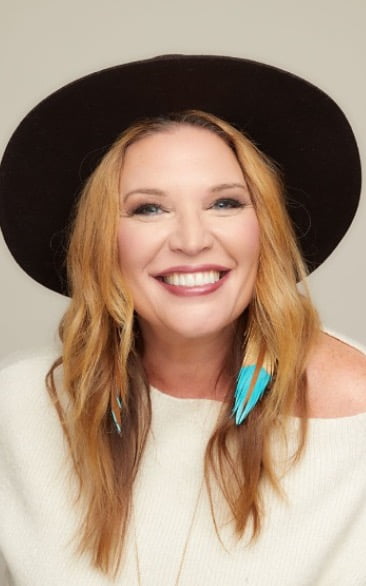
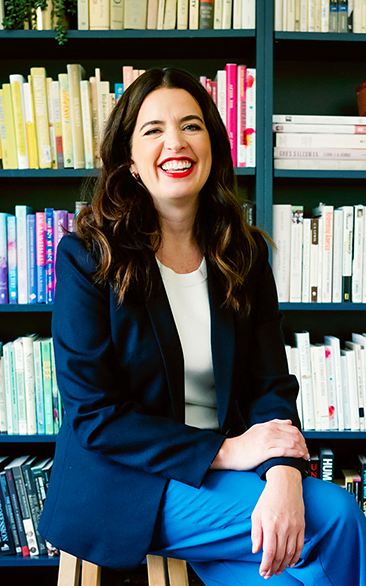








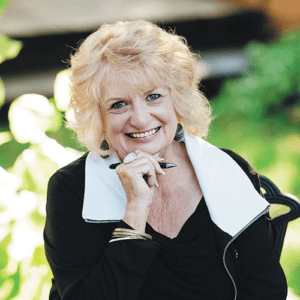
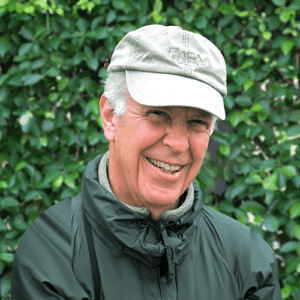
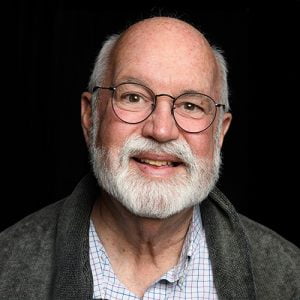
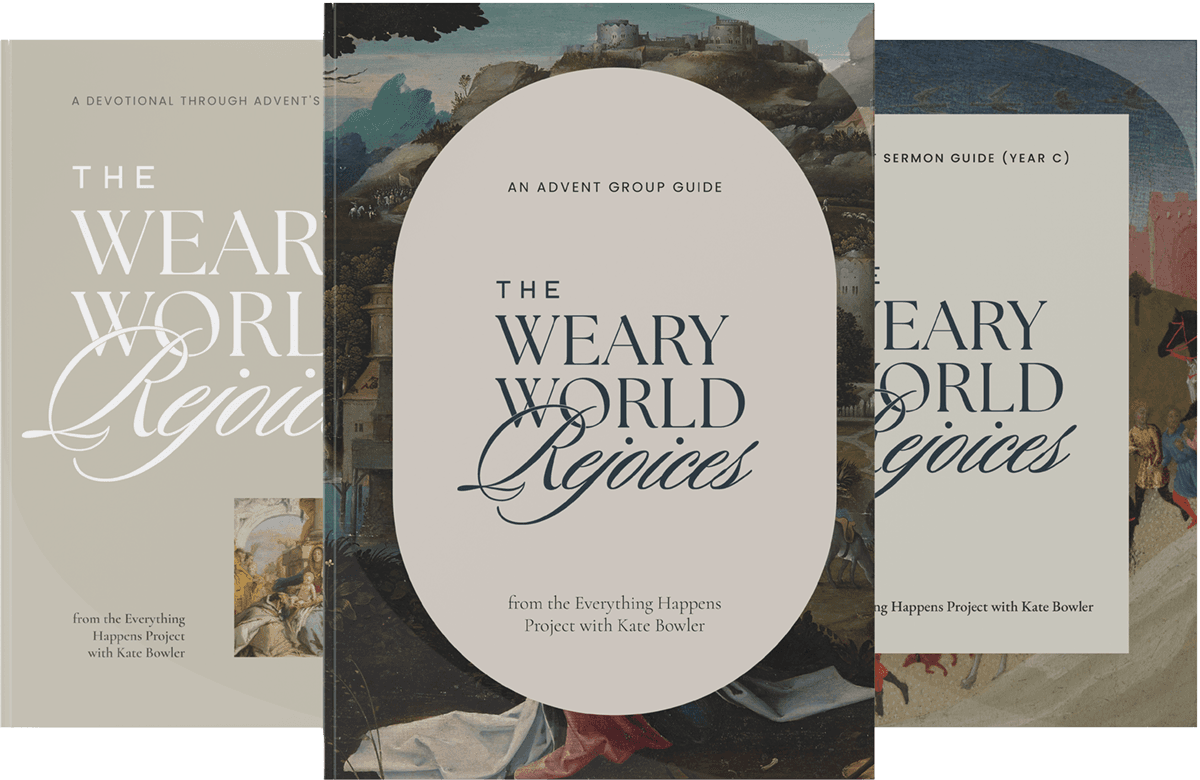
Leave a Reply